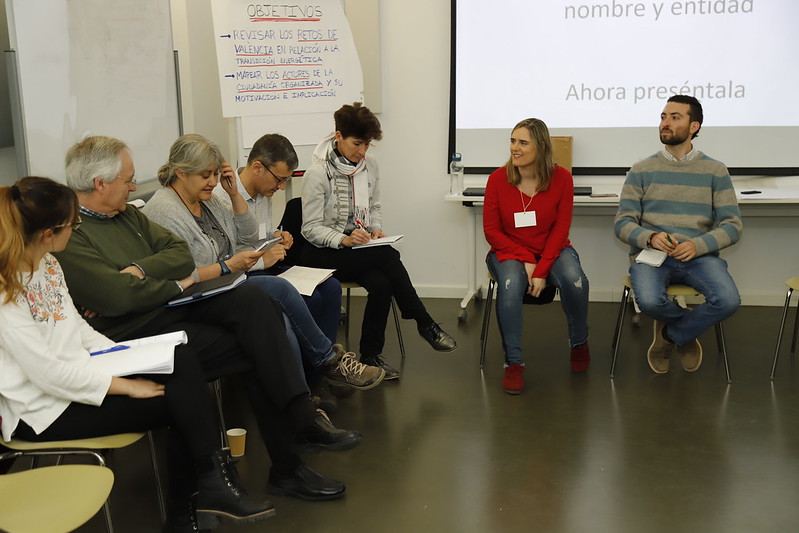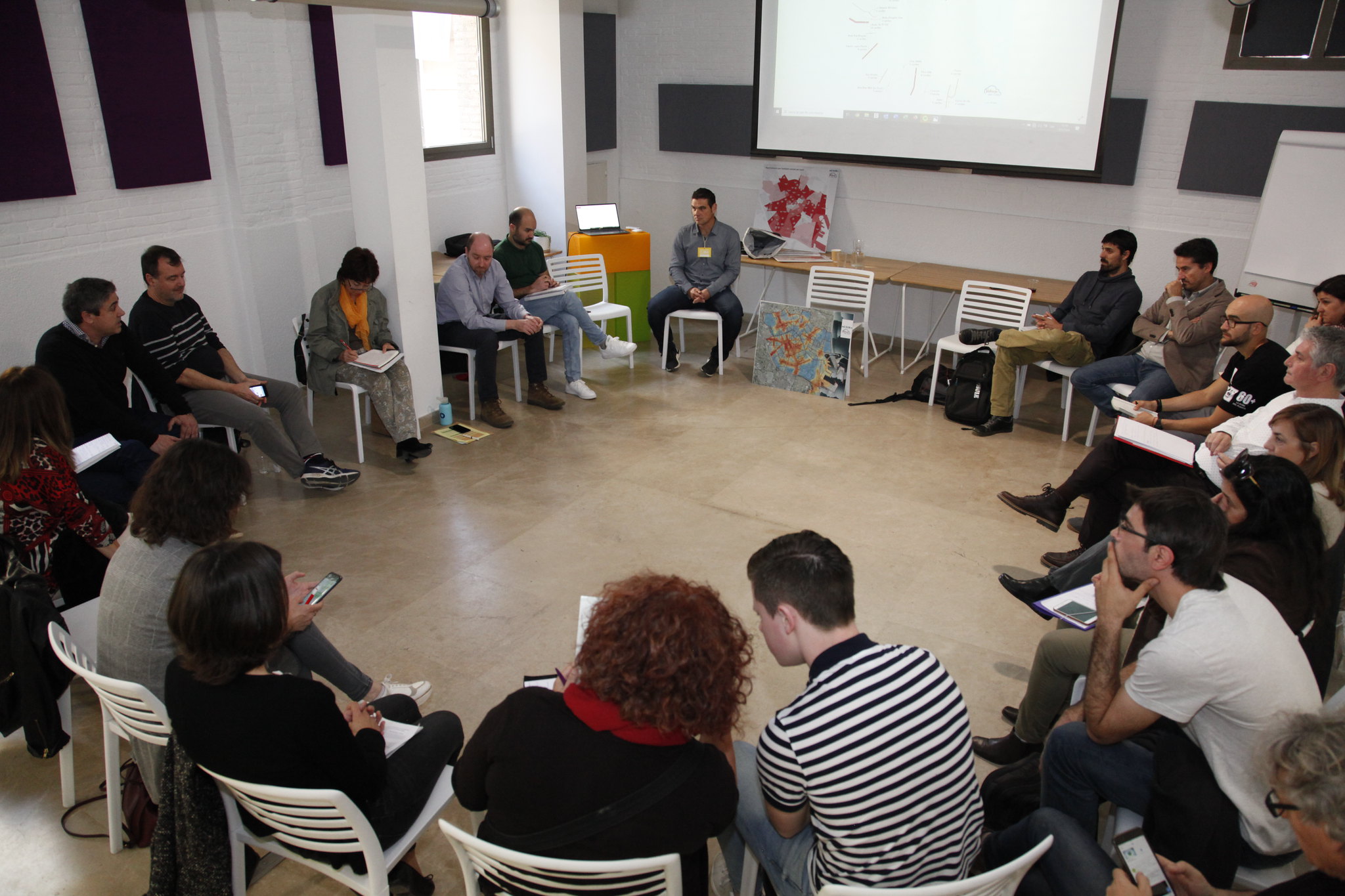
On March 4th, before the COVID19 measures entered into force, the City of Valencia held a conference in the framework of the initiative “VALÈNCIA CANVIA PEL CLIMA!” - Catalan for “Valencia changes for the climate!”, now in its 3rd year. This initiative aims to share information on all the proposals and actions developed in the city in the field of energy transition and climate action.
In 2018, up to 30 conferences, workshops and talks were held over the course of a month, and culminated with an open day in the Town Hall square on the morning of 11th November. Last year, citizen organizations and public institutions, but also freelancers and companies organised a full day of workshops, presentations and conferences in the beautiful Turia’s Gardens around the theme “Our light, our energy”. This year, the discussion focused on collaboration for a sustainable city - “Aliança per a una ciutat sostenible”. Valencia City Council wanted to highlight the need to strengthen the social fabric, to make sure citizens are informed and able to act, for advancing the transition towards a city that is “free of emissions and pollution, green, healthy, inclusive, supportive and tailored of/to people’s needs”.
The events on March 4th represented the first call for this alliance in 2020. The city run three interactive workshops, to involve citizens and other stakeholders in the development of two roadmaps: one on energy transition and one about the “Natural City”, to explore the complex ties between urban and natural environments.

Developing the energy transition roadmap
The proposed energy transition roadmap for Valencia will be based on the city’s 2019 Sustainable Energy and Climate Action Plan - Valencia is a Covenant of Mayor signatory, but also on the work and done in the framework of the project TOMORROW. The event in March marked the start of an ambitious participatory exercise, where academia and the public and private sectors will also be involved.

The energy transition workshop focused on two challenges identified as a priority during previous meetings:
1. Generating and consuming renewable energy at the local level.
2. Guaranteeing the right to energy for all people.
For each challenge, there was a collective reflection and discussion around three questions:
● What? To define the challenges and understand their different dimensions and sub-challenges;
● How? To propose concrete actions and find solution to the different challenges and sub-challenges;
● Who? To identify civil society’s actors to engage in the city's energy transition.
The workshop ended with a vision building exercise, to visualise the ideal Valencia of the future. Participants were presented with a big poster showing an example of a sustainable city and each of them had to come up with at least one suggestion for their dream city. This exercise was more open than the previous ones: people could reflect and come up with ideas related to urban sustainability in general, covering not only the previously identified challenges.
In the following months, Valencia will continue working on the challenges. They will make sure that the workshops’ results are properly integrated in the design of the roadmap. The proposed actions will be presented to the city’s representatives for formal approval. The list of actors to be involved identified by the participants will serve as a starting point and will be expanded, to make sure the “transition roadmapping” process is as open and inclusive as possible.
Read the report (in Spanish) to find out more about the results
Check this video about the energy transition workshop
All pictures are curtesy of Valencia Climate Observatory